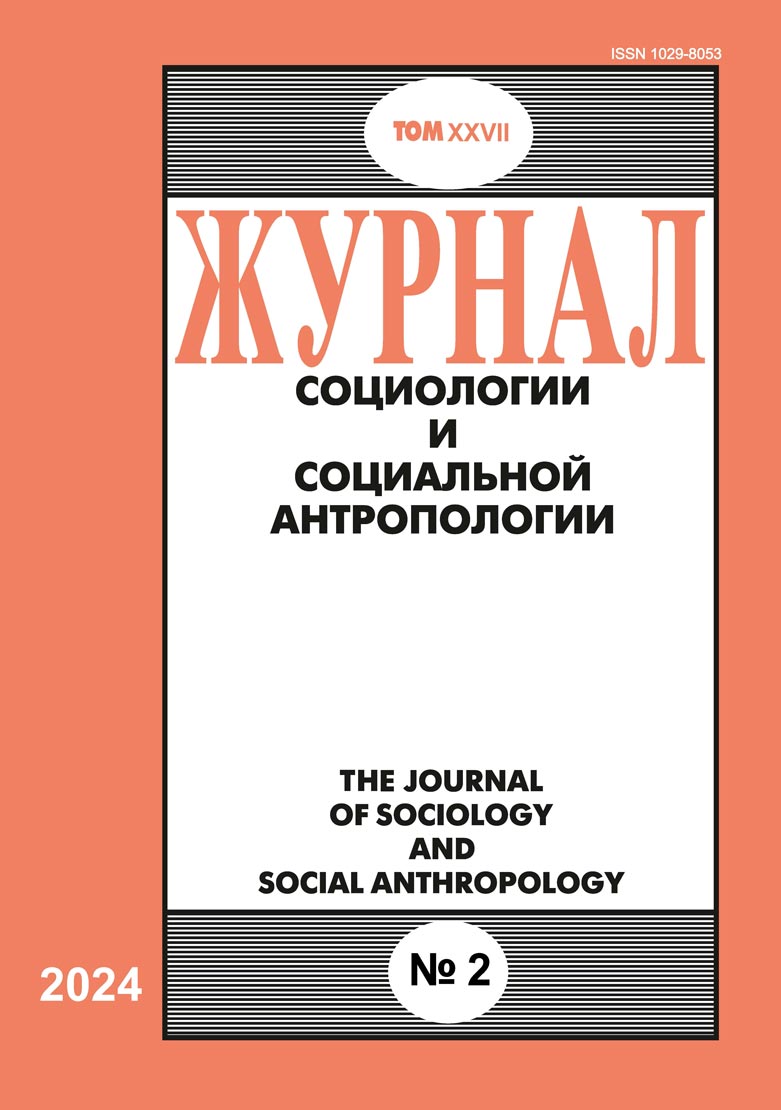Working hours and creativity: practical research experience
Abstract
The history of studying working time is directly related to the development of working relationships. Strict industrial accounting of every minute is increasingly receding into the background, due to the development of new post-industrial relations. The new economy is called in different ways, one of its names is "creative". The name emphasizes the special non-material contribution of a person to the development of the economy. The same "human", personal or anthropological focus, acquires consideration of working time. Problems arise when considering government organizations whose working hours are more subject to administrative and bureaucratic rules than others. This article is devoted to the consideration of such organizations, using the example of libraries, cultural centers, and institutions of additional education. The research is aimed at studying employees as carriers of the creative principle we are interested in, rather than organizations. In this regard, an interview was chosen as the main research method. The work is based on 8 interviews conducted by the author in June 2020 in the cities of Kemerovo and Polysaevo and 12 interviews in 2021 in St. Petersburg. The projective techniques “Lifeline” and “Workplace image” were used as auxiliary methods. The findings indicate the relationship between the amount of creative work in an organization and the amount of freedom that its employees have, the special importance of self-control among employees, which is transformed taking into account the specifics of creative work. The interrelation of the social life of the city and biorhythms is demonstrated.
References
Берарди Ф. (2019) Душа за работой: от отчуждения к автономии. М.: Грюндриссе.
Вайсман Д. (2019) Времени в обрез: ускорение жизни при цифровом капитализме. М.: Издательский дом «Дело» РАНХиГС.
Ваньке А.В., Полухина Е.В., Стрельникова А.В. (2020) Как собрать данные в полевом качественном исследовании. М.: Издательский дом Высшей школы экономики.
Гастев А.К (1972) Как надо работать. Практическое введение в науку организации труда. М.: Экономика.
Гидденс Э. (2005) Устроение общества. Очерк о теории структурации. М.: Академический Проект.
Горц А. (2010) Нематериальное. Знание, стоимость и капитал. М.: Издательский дом Государственного университета — Высшей школы экономики.
Гребер Д. (2020) Бредовая работа. Трактат о распространении бессмысленного труда. М.: Ад Маргинем Пресс.
Григорьева К.М. (2019) Генетические основы хронотипа человека. Forcipe, 2: 242.
Димаджио П., Пауэлл Дж.У.В. (2010) Новый взгляд на «железную клетку»: институциональный изоморфизм и коллективная рациональность в организационных полях. Экономическая социология, 1: 34–56.
Друкер П. (2004) Энциклопедия менеджмента. М.: Вильямс.
Дюркгейм Э. (2018) Элементарные формы религиозной жизни: тотемическая система в Австралии. М.: Элементарные формы.
Лыткин Д.Н. (2022) Структура времени в организации. Телескоп: журнал социологических и маркетинговых исследований, 2: 124–131.
Маркс К., Ф. Энгельс (1959) Сочинения. 2-е изд. Т. 13. М.: Гос. изд-во полит. лит-ры.
Мастеров Б.М., Некроенко Л.М. (2014) Time mentality management: парадигма «Управление хронотопом». Организационная психология, 3: 54–68.
Паркинсон С.Н. (2007) Законы Паркинсона. М.: АСТ.
Патрушев В.Д. (2001) Жизнь горожанина (1965–1998). М.: Academia.
Пруденский Г.А. (1972) Проблемы рабочего и внерабочего времени. М.: Наука.
Сорокин П., Мертон Р.К. (2004) Социальное время: опыт методологического и функционального анализа. Социологические исследования, 6: 112–119.
Струмилин С.Г. (1982) Проблемы экономики труда. М.: Наука.
Тросби Д. (2018) Экономика и культура. М.: Издательский дом Высшей школы экономики.
Флорида Р. (2016) Креативный класс. Люди, которые создают будущее. М.: Манн, Иванов и Фербер.
Фуко М. (2018) Надзирать и наказывать. Рождение тюрьмы. М.: Ад Маргинем.
Шейн Э. (2002) Организационная культура и лидерство. СПб.: Питер.
Штомпка П. (2005) Социология. Анализ современного общества. М.: Логос.
Яковлев В.П. (1980) Социальное время. Ростов: Изд-во Ростовского университета.
Edwards P.N. (2002) Infrastructure and Modernity: Force, Time, and Social Organization in the History of Sociotechnical Systems. In: Modernity and technology. Cambridge: MIT Press: 185–226.
Gurvitch G. (1964) The Spectrum of Social Time. Dordrecht: D. Reidel publishing company.
Hartmut R. (2013) Social Acceleration: A New Theory of Modernity. N.Y.: Columbia University Press.
Hassard J. (1990) The Sociology of Time. N.Y.: St. Martin's Press.

